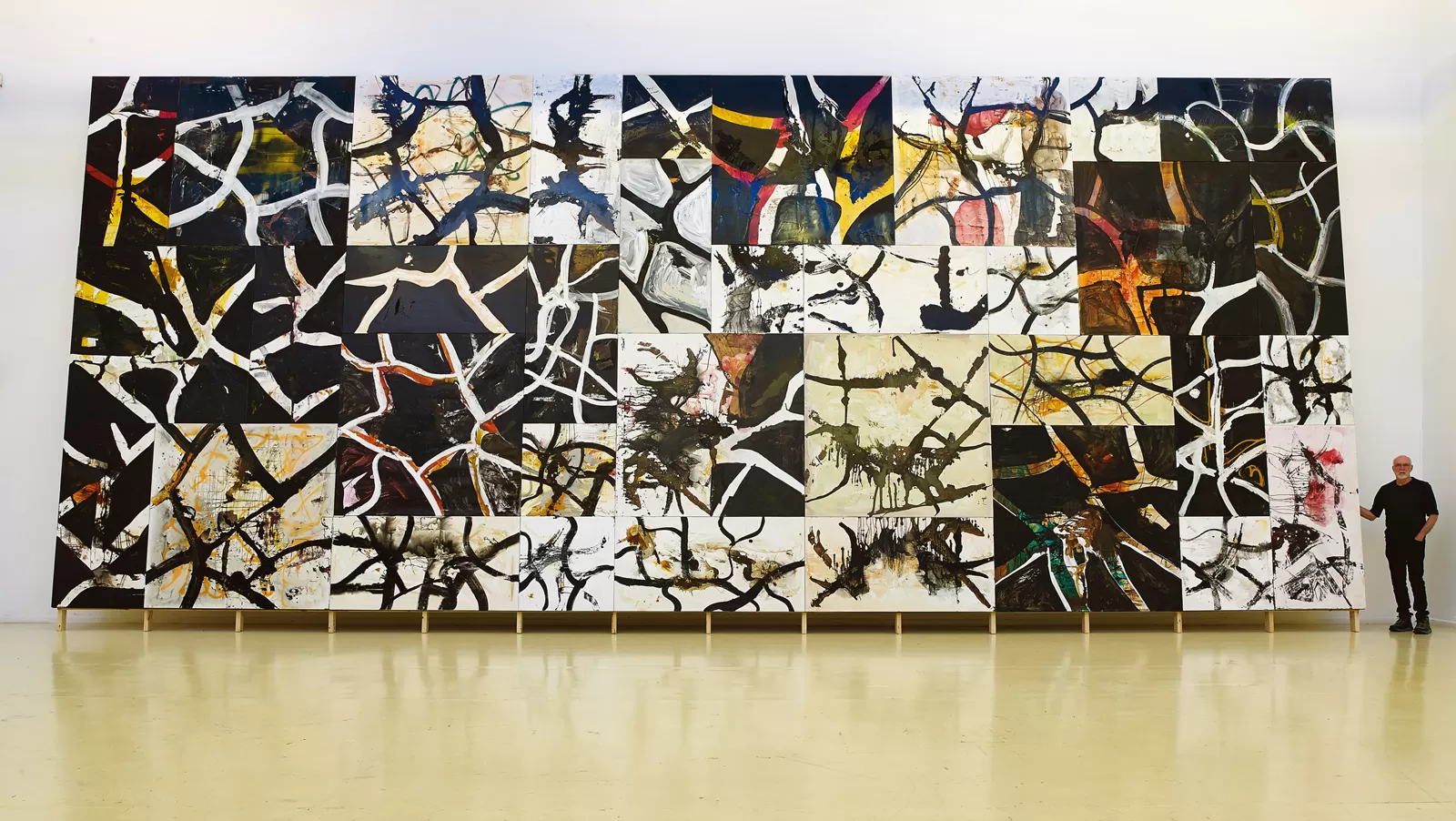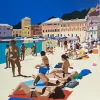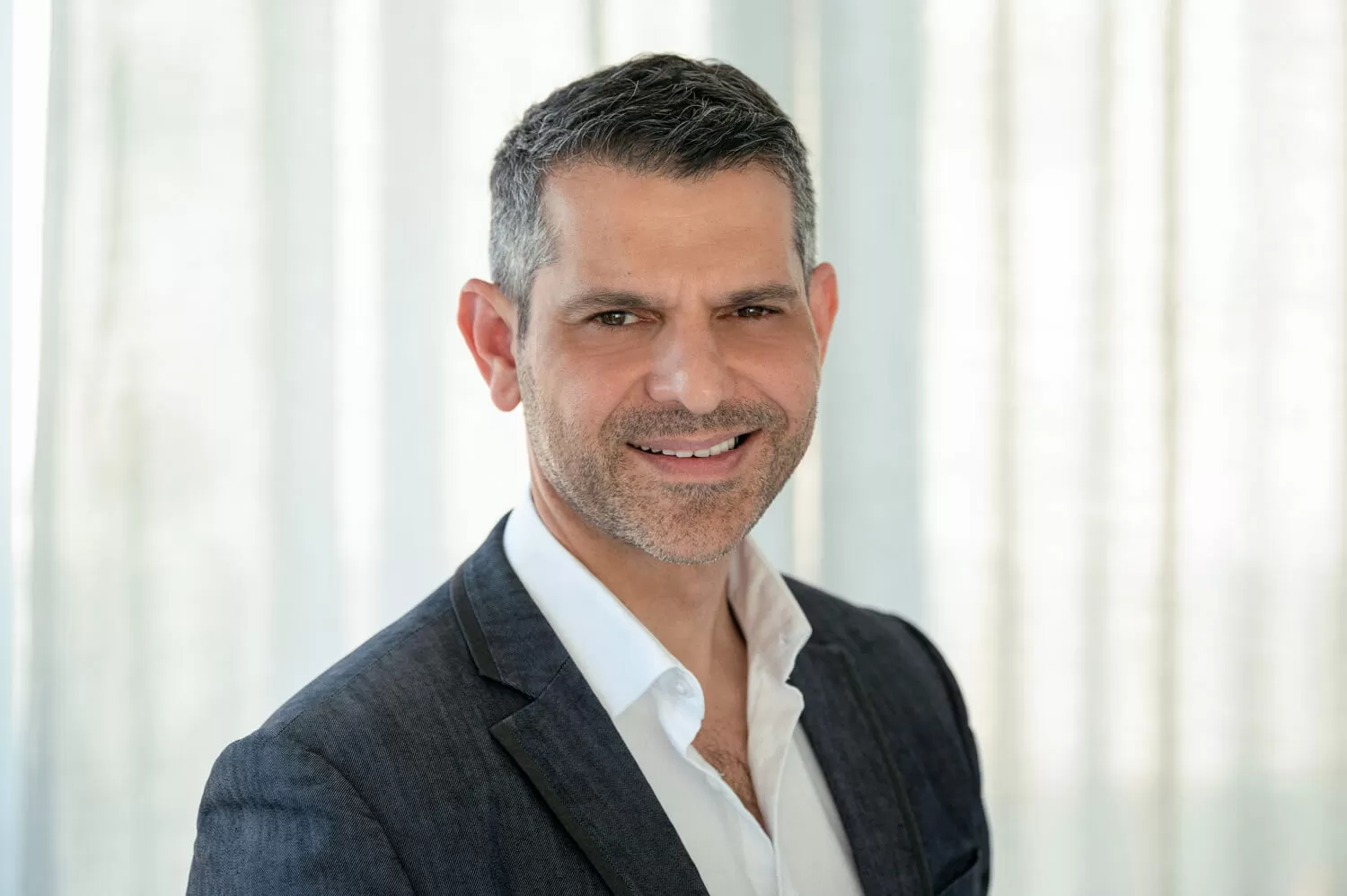We exist so lightly in this world. Our actions and intentions, however calculated, are often subject to forces beyond individual circumstances. Upheaval and change have always been part of the human experience, but as our planet becomes more crowded, there is a prevailing feeling our individual agency is ever more depleted. This is not to say that the apparent senselessness is akin to hopelessness. Quite the contrary. The tragedy and beauty of human existence are captured by the poetic, universal arbitrariness of our life paths. Something generative happens when we embrace this entropy. This sentiment can be seen in the work of artists Tsibi Geva, Noa Yekutieli, and Maria Saleh Mahameed.
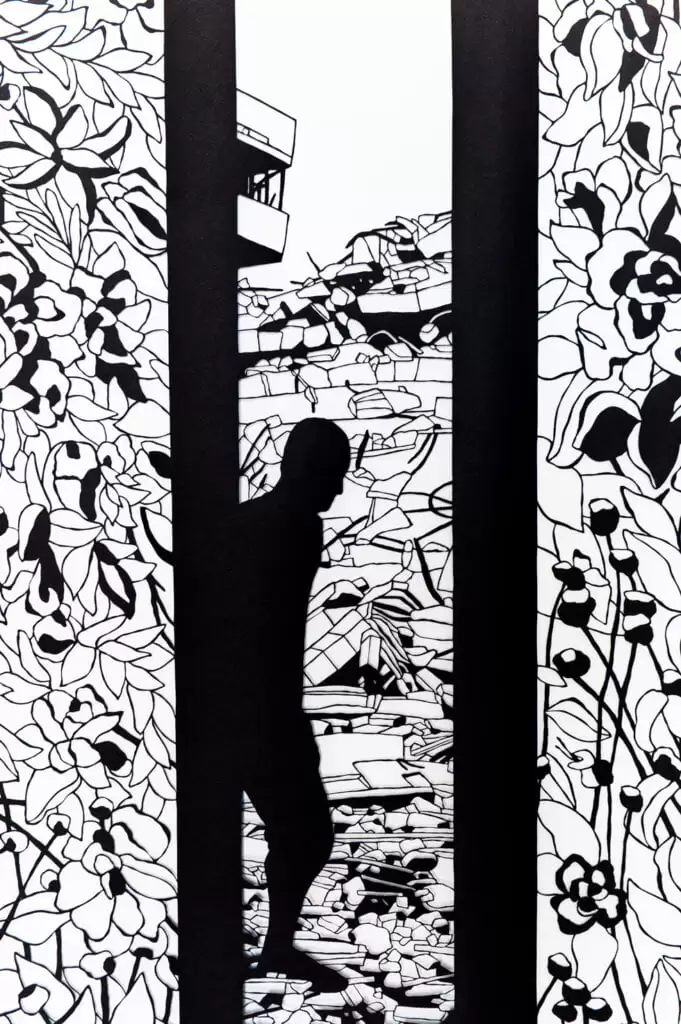
These three artists represent a wide range of backgrounds, sensibilities, and practices. They seem, upon first impression, to be more dissimilar than related. Their narratives, mediums, and artistic intentions can even be seen as being at odds with one another. Their work is created in the context of Israel and Palestine, resonating with the constant state of conflict in the region or within themselves. Despite their differences and divisions, these three artists all share the miraculous bond of friendship. Their mutually supportive relationship buttresses each other’s work, providing a remarkable framework for this exhibition. Relationality, a world view that emphasizes an innate sense of human connectedness, underlies their work.
This is evident in the ways their aesthetic approaches metaphorically branch out or confine itself. Geva’s endless painted roads at once lead somewhere specific and nowhere at all. Yeuketeli’s windows repeatedly open and close, thus protesting specific patterns. Mahameed’ objects and motifs often have roots and long extensions, contrasted by varying culminations.
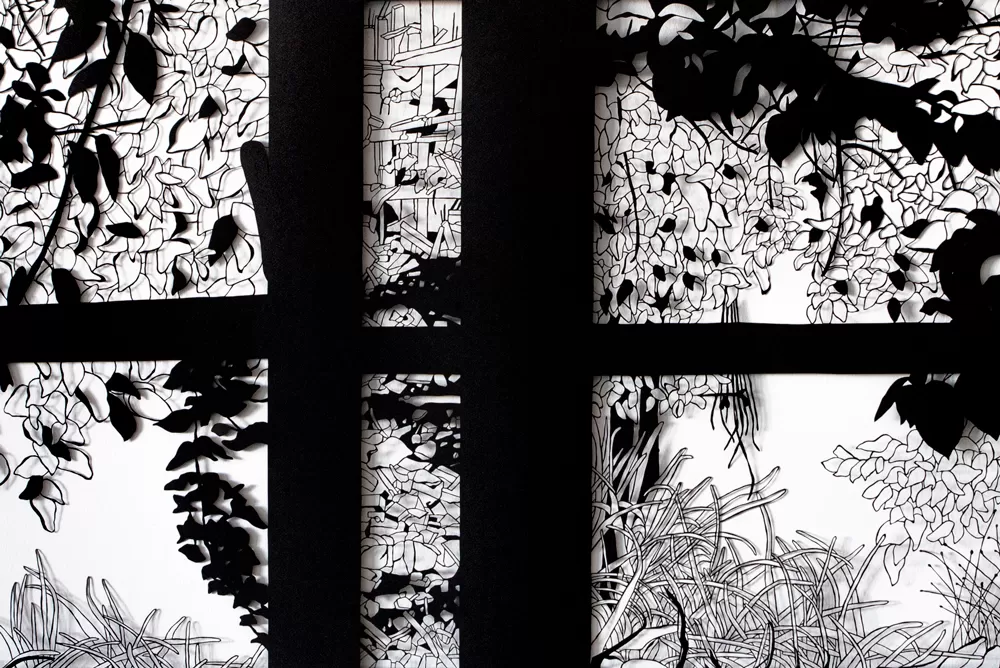
Conscious Collective explores how, despite the chaos and resulting frustrations with contemporary life, commonality can be found through a shared interrogation of the whole of human relations and its social context. Echoing the theories of French curator and academic Nicolas Bourriaud in his writing in Relational Aesthetics and the Jungian concept of the collective unconscious, this exhibition demonstrates that a shared embrace of life’s ambiguity offers a path forward for reclaiming agency and providing a means to envision a better world.
Consider the work of Maria Saleh Mahameed. Born to a Ukrainian Christian mother and a Palestinian father, Saleh Mahameed’s practice is both illustrative and autobiographical. Her work, typically in the form of large-scale charcoal works on walls, seeks to grapple with a complex range of issues associated with nationality and religion seen through the lens of her own life. For Conscious Collective, Saleh Mahameed has included the 2022 work Ludmila (Wadi), a visual allegory for her own life and larger socio-political struggles within Israel and Palestine.
While the specificity of this work’s narrative may initially seem circumscribed, upon further consideration it provides a widely relatable parable for the rationale behind human movement and dislocation. Saleh Mahameed’s story resonates with countless others whose lives have been both transformed and created out of the universal, often irrational human experience of love and romance.
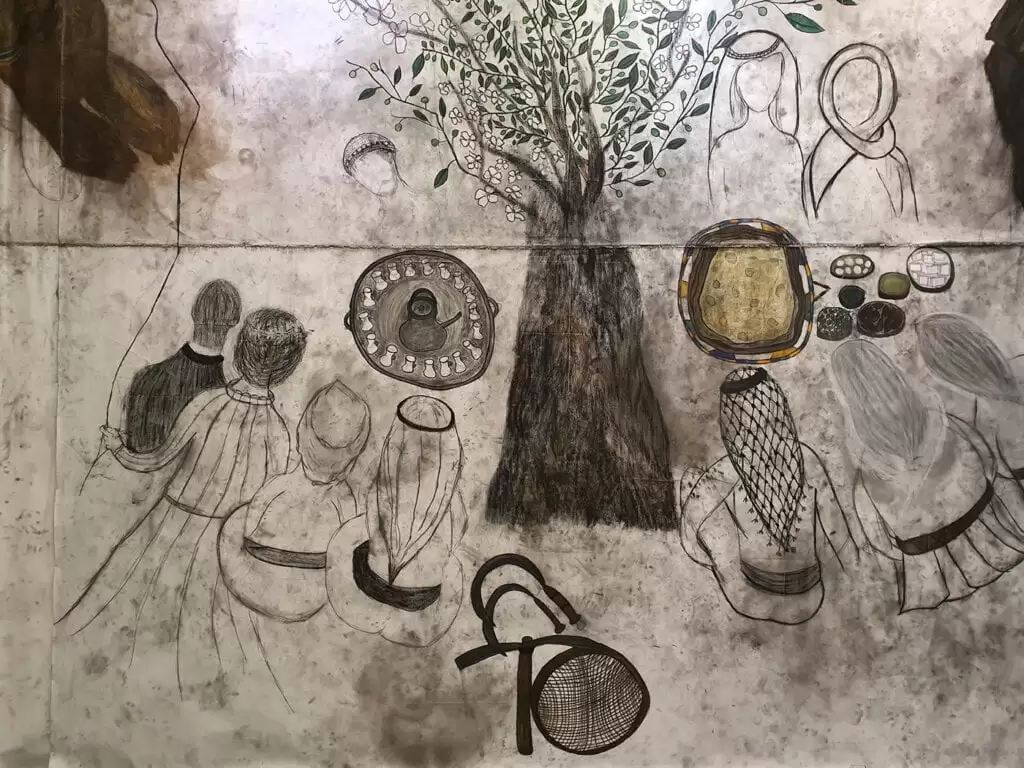
Conscious Collective, curated by Bartolomeo Pietromarchi, Shai Baitel and associate curator Elena Motisi
Despite its ubiquity, love is contrasted by the equally universal human experience of its loss, which underlies the origins of the practice of artist Noa Yekutieli. Born in Los Angeles, California to a Japanese mother and an Israeli father, Yekutieli relocated to Israel as a child. Her parents divorced several months after the move, and her mother, despite never having lived in Israel before, decided to stay.
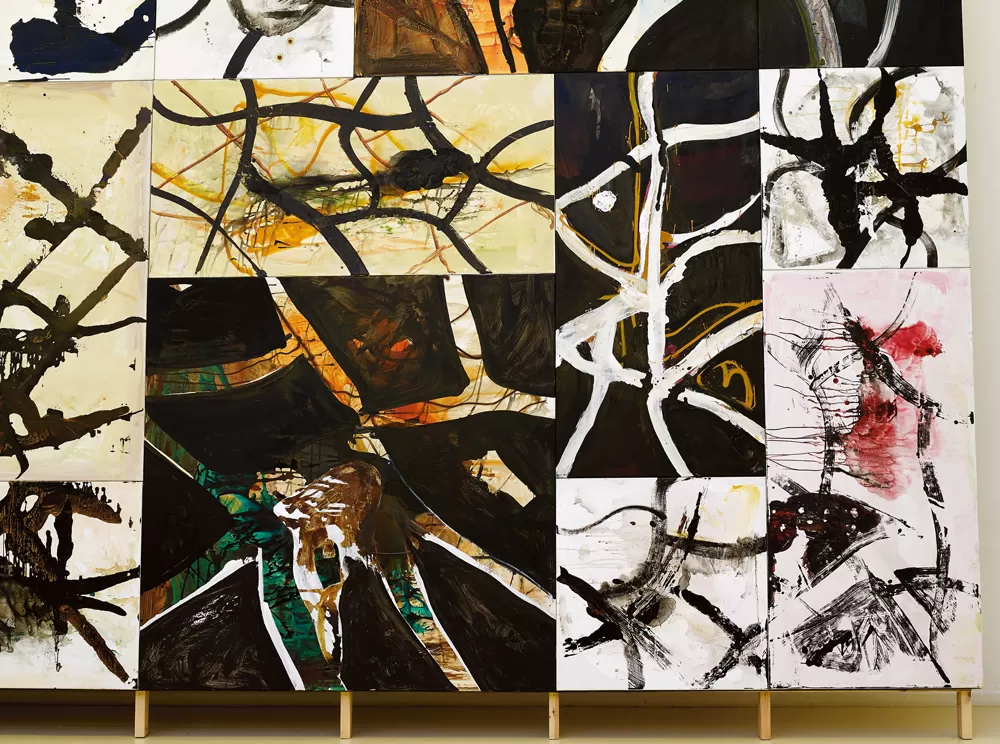
In its exploration of the absences caused by her distinct backgrounds, her work explores the personal trauma of being a permanent outsider, always looking through a metaphorical window. Her piece for Conscious Collective, titled Structure of Land, examines this trauma through the shared experience of war and destruction—present in Israel, Palestine, and the rest of the world. Violent imagery, sourced from around the world, is framed by window-like paper cutouts.
These paper windows fracture the given perspective of each scene of destruction, both obfuscating its legibility and giving a viewer a sense of measured distance and security. Resonating with her own identity, these images show how identity can work for and against itself, both refining and clouding one’s viewpoint through its arbitrary construction.
The concept of art working against itself is also present in the work of Israeli interdisciplinary artist Tsibi Geva, albeit from a very different background. Of Ashkenazi Jewish heritage, Geva’s practice seeks to explore his ambivalence towards his own identity and that of Israel itself. His work is layered, addressing at once the political situation in Israel, the psychological ramifications of conflict, and the resulting aesthetics produced from this turmoil.
While Geva’s identity may initially read as more typical to Israel than that of Yekutieli and Saleh Mahameed, he too is the product of both twentieth-century geopolitics and human migration. Through abstraction and repeated motifs, his work addresses the chance encounters and decisions that have resulted in his life in Israel, and the life of many others.
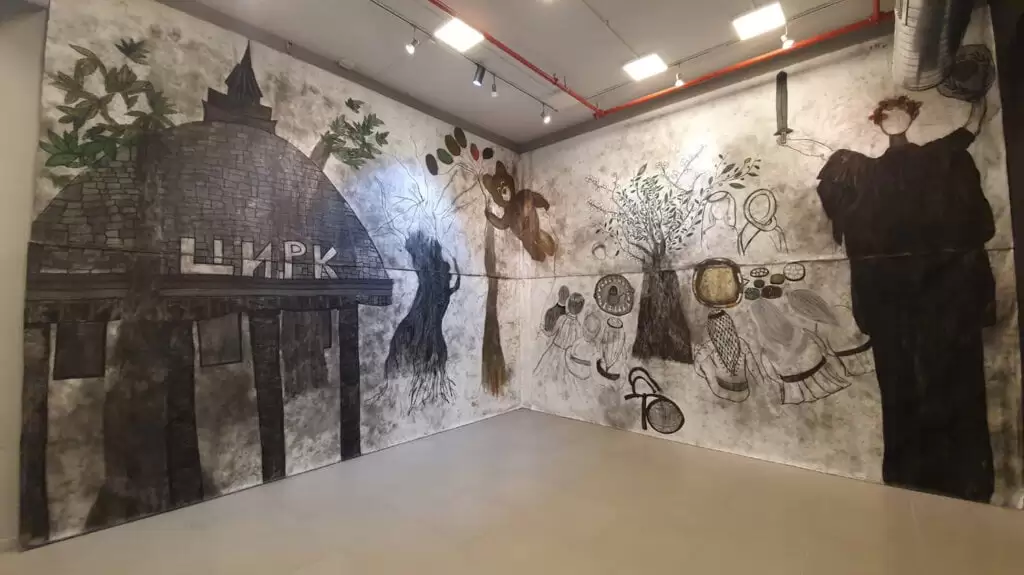
For Collective Conscious, Geva is exhibiting a series of modular paintings, self-contained canvases exhibited as a collective whole. Resonating with the work of Saleh Mahameed and Yekutieli, Geva’s work shows that the human experience is complicated, suggestive of kindness and conflict, and always meant to be embraced on its own terms.
Through their work a spectator cannot escape the inclination of their continuous roaming on the scale between their national identity to their national reality. Miraculously, Saleh Mahameed, Yekutieli, and Geva have participated in an exhibition that speaks to the impermanence of fixed narratives, identities, and the ethereal power of friendship. Conscious Collective shows that relationships are a universal, intimate experience that, like life’s circumstances itself, are rarely easily explained. As the late Prime Minister of Pakistan Benazir Bhutto wrote in her memoir Daughter of the East, “I didn’t choose this life; it chose me.” This has certainly proven to be the case for Saleh Mahameed, Yekutieli, and Geva.
Shai Baitel is the Artistic Director of the Modern Art Museum (MAM) Shanghai
Conscious Collective, curated by Bartolomeo Pietromarchi, Shai Baitel and associate curator Elena Motisi and realised in collaboration with the Israeli Embassy in Rome, is opening at MAXXI – National Museum of 21st Century Arts, Claudia Gian Ferrari Hall, from 17 March to 4 June 2023.
©2023 Shai Baitel
Shai is an arts executive and creative director with extensive experience in arts and culture, business, and philanthropy. He co-founded Mana Contemporary, the largest arts center of its kind. He conceived the exhibitions ‘Bob Dylan: Retrospectrum’ in 2019 and ‘Zaha Hadid Architects-Close Up’ in 2021. Baitel is a prolific writer and has contributed to major publications.


